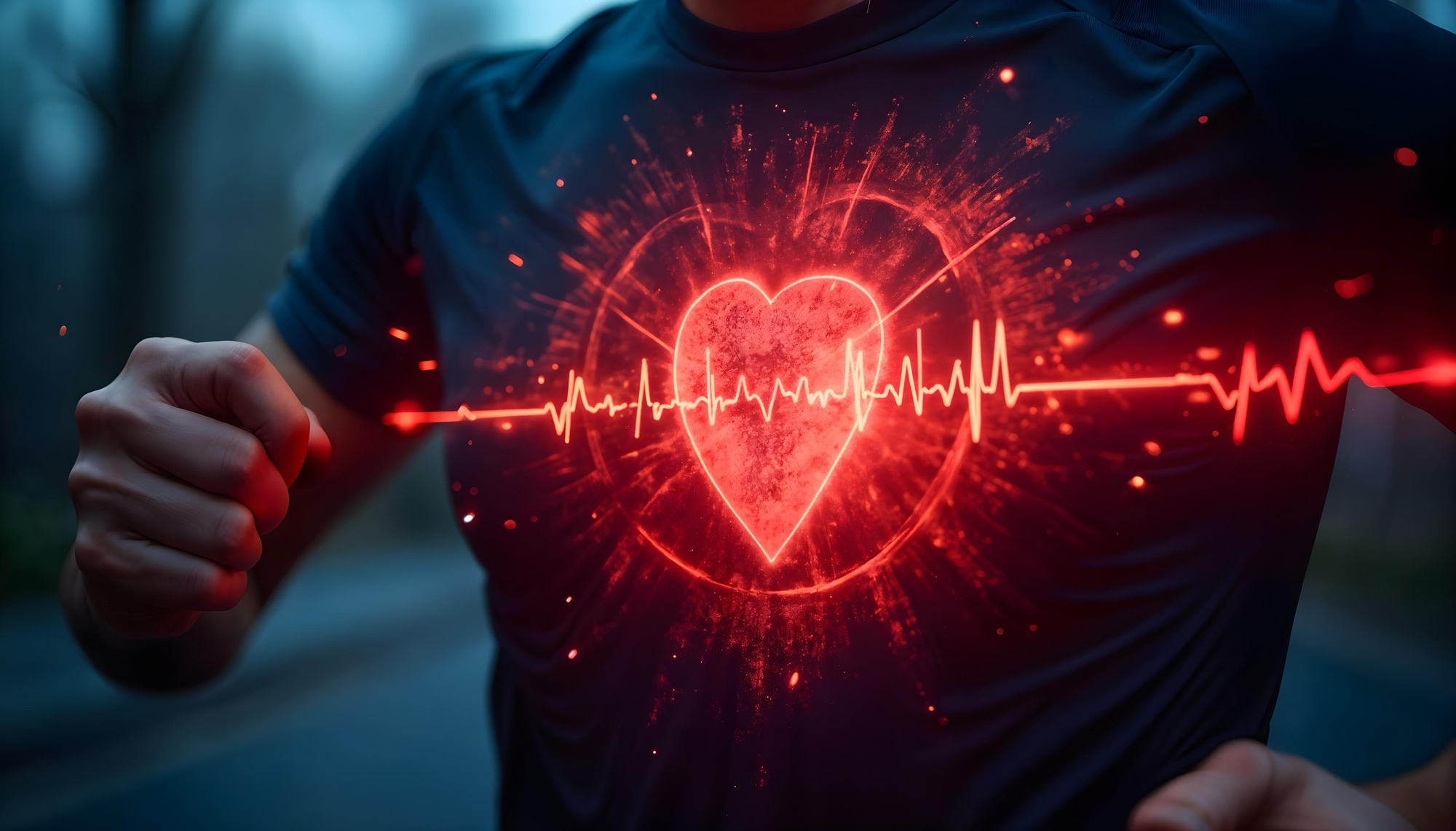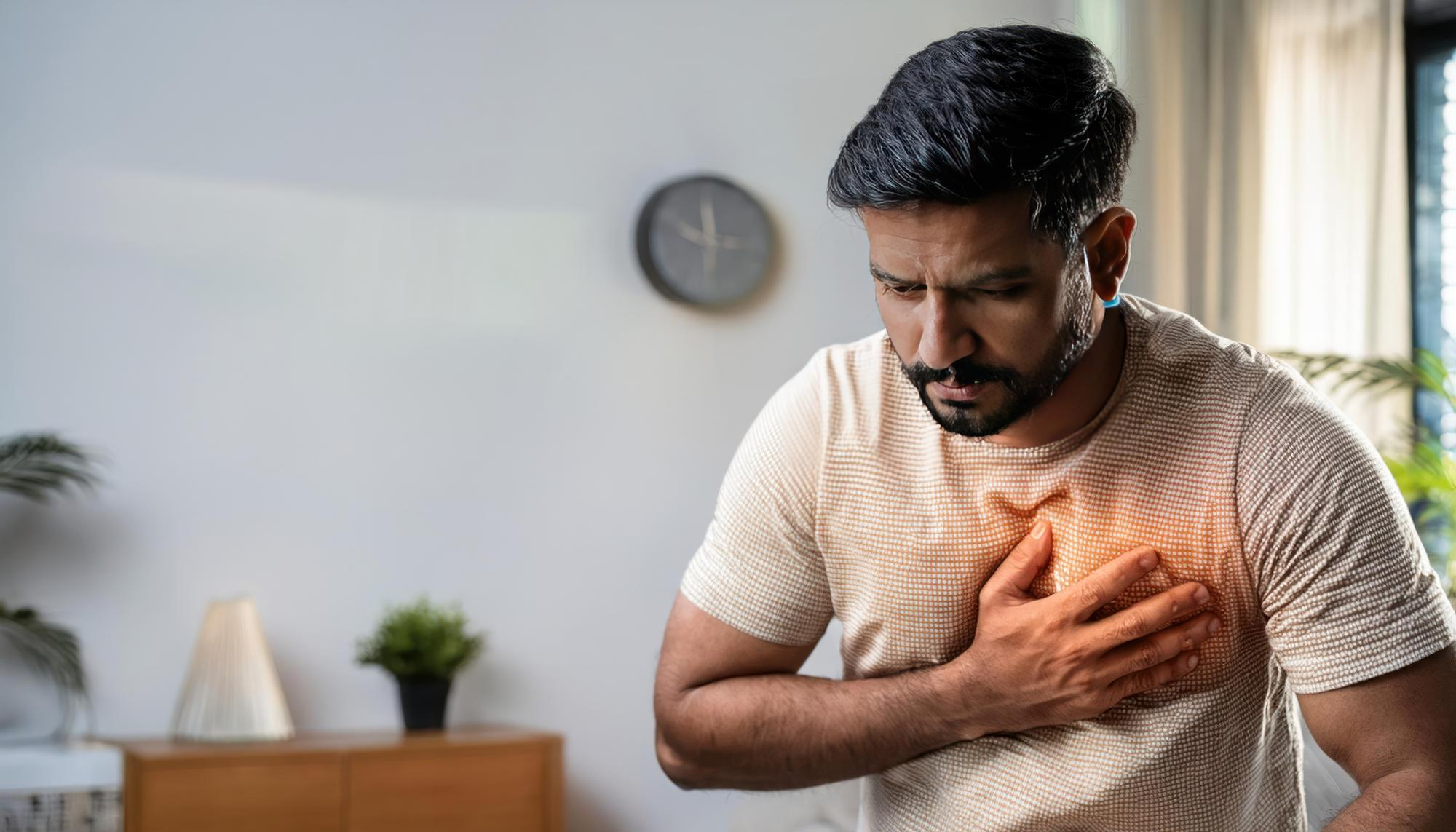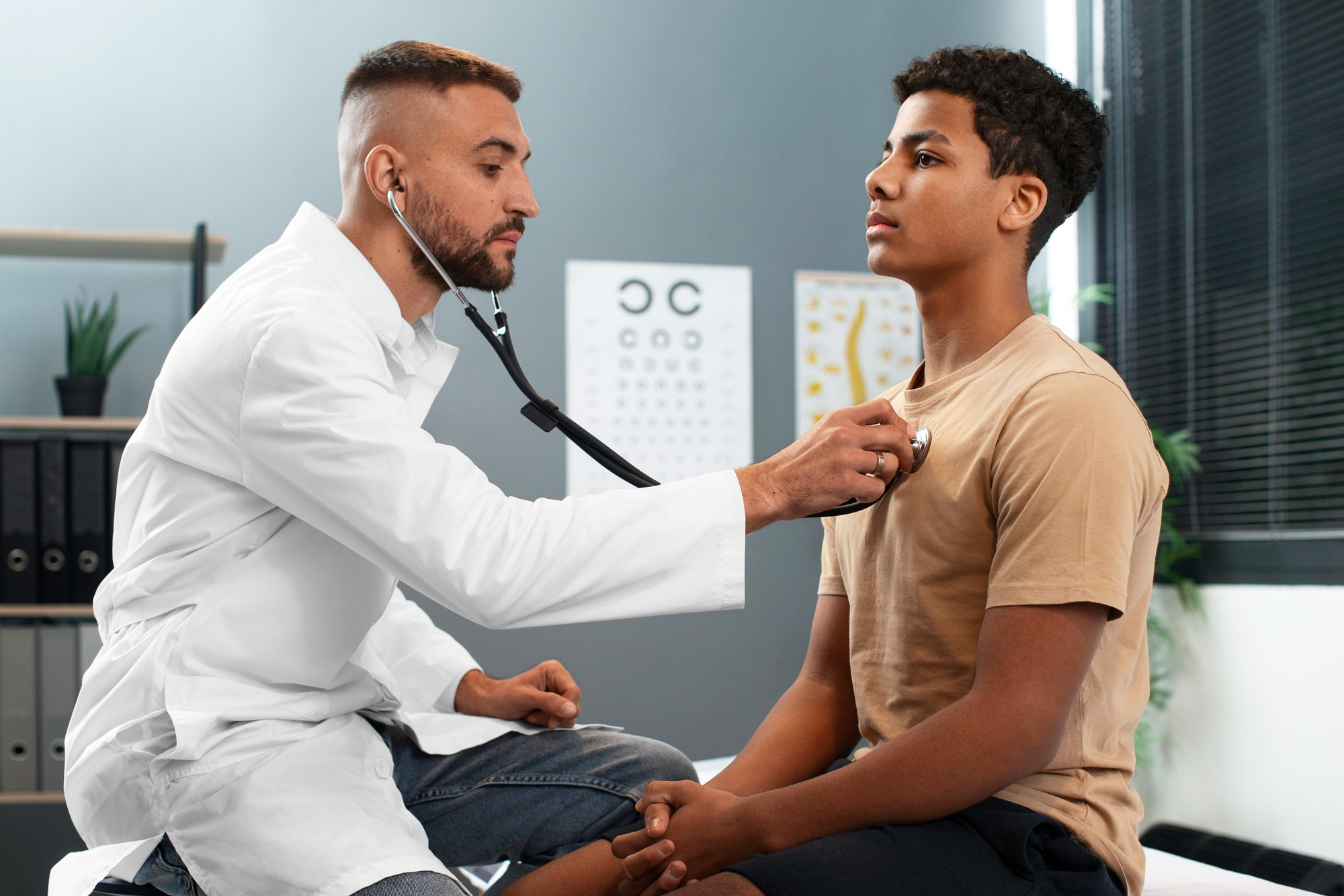
A man running facing heart palpitations.
Have you ever experienced your heart seemingly skip a beat, flutter or race for no reason? These are called heart palpitations and they're a lot more common than you may think.
Most palpitations are not dangerous. They are caused by stress, caffeine, dehydration or lack of sleep. However, sometimes they can be a symptom of a more serious heart rhythm problem that may require medical attention.
Understanding when to worry and when not to is key to protecting your heart health.
Heart palpitations are feelings of having a very noticeable heartbeat.
You may feel like your:
They can occur at rest, during activity or even while lying down. Most episodes last only a few seconds or minutes and resolve spontaneously.
Although the name heart palpitations may sound serious, it often is caused by very common everyday things rather than disease.
Some common causes include:
Emotional stress, panic attacks or anxiety can cause adrenaline surges that make the heart beat faster and harder.
Too much coffee, tea, energy drinks or nicotine can overstimulate the heart and lead to palpitations.
If fluids or minerals like potassium and magnesium fall in short supply, the heart's electrical rhythm can become irregular.
Poor sleep or getting less than enough sleep, increases stress hormones and disrupts the regulation of heart rhythm.
Fluctuations in hormone levels may lead to palpitations in women during menstruation, pregnancy or menopause.
Certain asthma inhalers, thyroid medications and over-the-counter decongestants can increase heart rate or cause irregular beats.
A faster heartbeat during or after a workout is normal but if you feel dizzy or faint along with palpitations, it's worth checking with a doctor.
Occasional palpitations are not dangerous. However, frequent, prolonged or accompanied symptoms are potential warning signs of an underlying heart condition such as:
Seek medical attention right away if you have palpitations with:

A man holding his chest in visible discomfort.
These symptoms may indicate a serious cardiac problem that should receive immediate attention.
If you go to the doctor because of palpitations, he will first of all listen to your medical history, medications, and lifestyle.
Common tests include:
These tests can help doctors determine whether your palpitations are benign or related to an underlying heart condition.
Cut down on coffee, tea, energy drinks and alcohol. All can overstimulate your heart.
Drink enough water throughout the day. Dehydration thickens the blood and strains the heart.
Try deep breathing, yoga or meditation in order to reduce anxiety and heart rhythm.
Aim for 7 to 8 hours of quality sleep to keep your hormones and heartbeat in balance.
Nicotine stimulates the heart rate and can increase the risk of arrhythmias.
Include in your diet foods rich in omega-3 fatty acids, potassium, magnesium and fiber while limiting excessive sugar, processed food and salt.
Moderate exercise, such as brisk walking, cycling or swimming, will strengthen your heart. Always warm up and cool down to avoid sudden heart rate spikes.
Treatment depends on the cause of your palpitations:

A doctor using a stethoscope to check a patient’s heartbeat.
The cardiologists at Prakash Hospital are specially trained in the investigation and management of heart rhythm disorders. At the core of our approach is skilled medical care combined with lifestyle counseling to help patients cope with stress and further improve heart functioning, preventing further cardiac complications. Whether it's that minor flutter or a recurring concern, our specialists will ensure your heart health always comes first.
Book a medical consultation if:
Remember, it is always better to get checked early. Most palpitations are not dangerous, but some can be early warning signs of a cardiac rhythm disorder that is readily treatable if it is caught in time.
Not every flutter is cause for alarm but listening to your body is. Occasional palpitations after stress or caffeine consumption are considered normal. On the other hand, if they are frequent, intense or accompanied by other symptoms, do not ignore them.
Healthy living, stress management and regular check-ups are your best defenses against problems of heart rhythm. With the right care and expert guidance from the cardiology team at Prakash Hospital, you can keep your heart steady and strong for years to come.
We offer expert care across key specialties, including Medicine, Cardiology, Orthopaedics, ENT, Gynaecology, and more—delivering trusted treatment under one roof.
Prakash Hospital Pvt. Ltd. is a 100 bedded NABH NABL accredited multispecialty hospital along with a center of trauma and orthopedics. We are in the service of society since 2001.
OUR SPECIALITIES
Contact Us
D – 12A, 12B, Sector-33, G. B. Nagar, Noida, Uttar Pradesh 201301
+91-8826000033

© 2026 All rights reserved.
Designed and Developed by Zarle Infotech